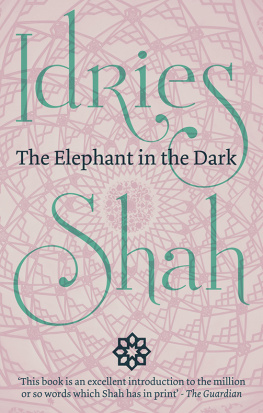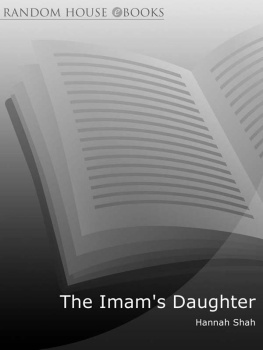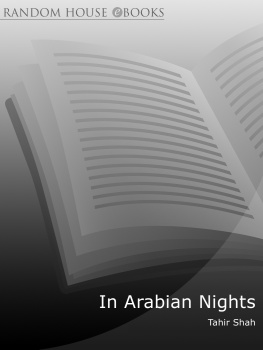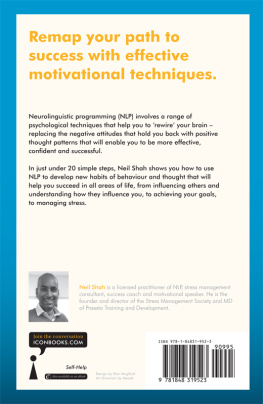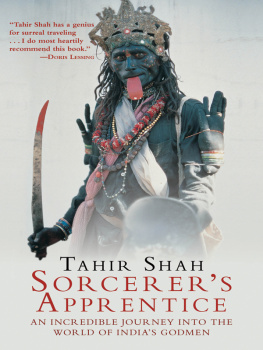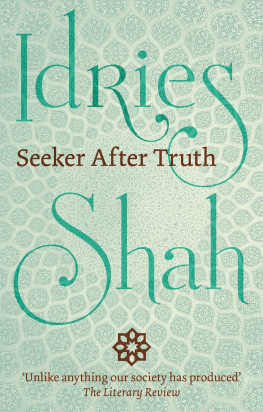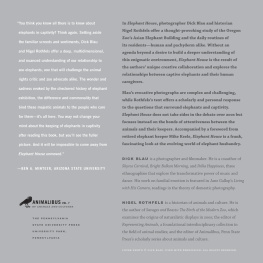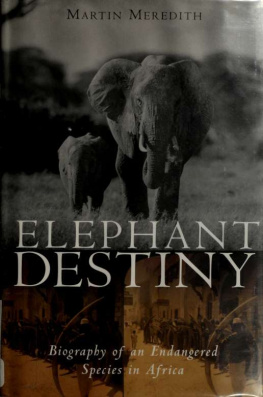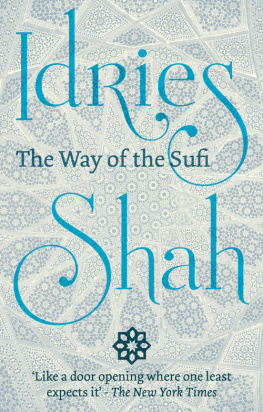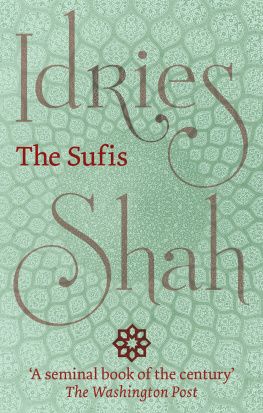T HE E LEPHANT IN THE D ARK
Books by Idries Shah
Sufi Studies and Middle Eastern Literature
The Sufis
Caravan of Dreams
The Way of the Sufi
Tales of the Dervishes: Teaching-stories Over a
Thousand Years
Sufi Thought and Action
Traditional Psychology,
Teaching Encounters and Narratives
Thinkers of the East: Studies in Experientialism
Wisdom of the Idiots
The Dermis Probe
Learning How to Learn: Psychology and Spirituality
in the Sufi Way
Knowing How to Know
The Magic Monastery: Analogical and Action Philosophy
Seeker After Truth
Observations
Evenings with Idries Shah
The Commanding Self
University Lectures
A Perfumed Scorpion (Institute for the Study of
Human Knowledge and California University)
Special Problems in the Study of Sufi Ideas
(Sussex University)
The Elephant in the Dark: Christianity,
Islam and the Sufis (Geneva University)
Neglected Aspects of Sufi Study: Beginning to Begin
(The New School for Social Research)
Letters and Lectures of Idries Shah
Current and Traditional Ideas
Reflections
The Book of the Book
A Veiled Gazelle: Seeing How to See
Special Illumination: The Sufi Use of Humour
The Mulla Nasrudin Corpus
The Pleasantries of the Incredible Mulla Nasrudin
The Subtleties of the Inimitable Mulla Nasrudin
The Exploits of the Incomparable Mulla Nasrudin
The World of Nasrudin
Travel and Exploration
Destination Mecca
Studies in Minority Beliefs
The Secret Lore of Magic
Oriental Magic
Selected Folktales and Their Background
World Tales
A Novel
Kara Kush
Sociological Works
Darkest England
The Natives Are Restless
The Englishmans Handbook
Translated by Idries Shah
The Hundred Tales of Wisdom (Aflakis Munaqib)
T HE E LEPHANT IN THE D ARK
Idries Shah

Copyright The Estate of Idries Shah
The right of the Estate of Idries Shah to be identified
as the owner of this work has been asserted by them in accordance
with the Copyright, Designs and Patents Act 1988.
All rights reserved
Copyright throughout the world
ISBN 978-1-78479-104-9 (ePub)
First Published 1974
Published in this edition 2016
No part of this publication may be reproduced or transmitted in any form or by any means, electronic, mechanical or photographic, by recording or any information storage or retrieval system or method now known or to be invented or adapted, without prior permission obtained in writing from the publisher, ISF Publishing, except by a reviewer quoting brief passages in a review written for inclusion in a journal, magazine, newspaper or broadcast.
Requests for permission to reprint, reproduce etc., to:
The Permissions Department
ISF Publishing
The Idries Shah Foundation
P. O. Box 71911
London NW2 9QA
United Kingdom
In association with The Idries Shah Foundation
THE ELEPHANT IN THE DARK
Christianity, Islam and the Sufis
GENEVA UNIVERSITY LECTURES 1972/3
C HRISTIAN SCHOLARS OFTEN say that Sufi theories are close to those of Christianity. Many Muslims maintain that they are essentially derived from Islam. The resemblance of many Sufi ideas to those of several religious and esoteric systems are sometimes taken as evidence of derivation. The Islamic interpretation is that religion is of one origin, differences being due to local or historical causes.
Rumi, the Sufi teacher of 700 years ago, has emphasised and strikingly illustrated the last contention in his tale of the men who sought to examine an elephant by the sense of touch alone. Each thought that one part was the whole, and experienced it, moreover, in a manner slightly different from reality. The elephant was only, for one a fan (an ear), for another a rope (the tail), for a third a pillar (a leg) and so on.
These lectures provide material for the consideration of common factors, in theory and in development, from the viewpoint of the idea of surrender to the Divine Will, reviewing some aspects of the interplay between Christians and Muslims, and introducing material from and about Sufis.
Grateful thanks are offered to the University of Geneva, to Dean Gabriel Widmer, to Professor N. Nissiotis and Dr S. J. Samartha (Geneva), Professor Peter Antes (Freiburg University), Dr B. Mukerji (Benares University) and all the other participants in the work of the Ecumenical Institute at Bossey during my time there, for their generous spirit of service to scholarship and their help to me.
Idries Shah
Contents
Salvation as a Total Surrender to God
I
1
T HE PURPOSE OF ecumenical studies, as it is at present employed, is to examine and encourage bases of religion, and the co-operation between people of various religions. Some Western dictionaries, I notice, define this activity as being concerned with the Christian church only; and the use of the word as confined solely to the Roman Catholic Church is noted in such authorities as the Oxford English Dictionary. Ecumenical, of course, is of Greek derivation, meaning belonging to the whole world. I shall assume, consistently with my presence here, that the narrower definitions just referred to are not sustained by my audience. It is interesting to me, however, to note them: for they both indicate the assumption, in some minds at least, that a given way of thinking expressed in certain institutions is universal (on the negative side); and that my audience, at least, is contemporary enough in its objectivity to hear at least the ideas of those who do not belong to the theological formulations which constitute the background of their own attitudes (on the positive side). I need not say which one I prefer. Since I have been asked to contribute on Salvation as a Total Surrender to God: An Attempt at Dialogue Between Christians and Muslims, and Geneva University has honoured me by naming me a Visiting Professor and suggesting this subject, I would like, after expressing my gratitude for the opportunity to teach at this ancient and illustrious institution, to indicate that I propose to introduce the subject
(1) From an Islamic viewpoint;
(2) In its historical context, however rapidly;
(3) As something which has existed since the beginnings
of Islam, nearly fifteen centuries ago, again with examples;
(4) As an opportunity of bridge-building for the present and future, as well as the utilisation of the bridges which are of considerable antiquity and tested strength.
Christian writers and scholars frequently complain that Muslims have distorted ideas about what the Christians believe, and what they practise. This may well be so, though as one who was brought up in an ancient and formal Muslim family with extensive experience of discussion with Muslims of many countries and every walk of life, I cannot recall anything analogous, even, to the report published not long ago by an American who attended a school run by the Arabian-American Oil Company in New York.
He tells us:
The questions What is Islam? and Who was the Prophet Mohammed? brought forth some interesting answers. One of our members thought that Islam was a game of chance, similar to bridge. Another said that it was a mysterious sect founded in the South by the Ku Klux Klan. One gentleman believed it to be an organisation of American Masons who dress in strange costumes. The Prophet Mohammed was thought to be the man who wrote the

